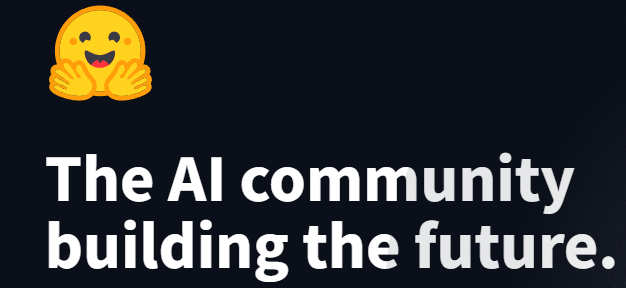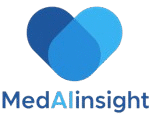“Open-Source AI like Hugging Face brings cutting-edge medical diagnostics to everyone—from rural physicians to top researchers—beyond Big Tech.”
A physician in Creuse (France) now has access to the same diagnostic tools as a Harvard professor. Medical innovation no longer depends solely on the astronomical budgets of Big Tech but thrives on the creativity of a global community. This reality has a name: Hugging Face.
Executive Summary
Hugging Face is democratizing healthcare AI by making 350,000+ open-source models freely available to medical professionals worldwide. This shift from proprietary to collaborative innovation enables hospitals, startups, and individual physicians to develop sophisticated AI solutions for diagnosis, research, and patient care. While challenges around bias and privacy remain, the open-source approach accelerates medical breakthroughs and equalizes access to cutting-edge healthcare technology.

The Silent Revolution That’s Changing Everything
While everyone obsesses over ChatGPT and Gemini, a far more strategic revolution quietly unfolds. Hugging Face, this small French company that became the “GitHub of AI,” transforms medicine in ways few truly understand.
Here’s the genius: while Google and OpenAI guard their models in technological vaults, Hugging Face makes the opposite bet. Open everything. Share everything. Democratize everything.
The results speak volumes:
- Over 350,000 AI models freely available
- Growing healthcare-focused model library
- Specialized “artificial brains” anyone can download and adapt
This open-source philosophy isn’t just ideological—it’s revolutionary.
How Open-Source AI Models Like BioBERT Transform Medical Diagnosis
When AI Detects What Human Eyes Miss
Sarah, 34, wandered from specialist to specialist for months. Chronic fatigue, bizarre joint pain, unexplained fevers plagued her daily life. Ten doctors consulted. Zero definitive diagnosis.
An open-source AI model cracked the case. The algorithm cross-referenced her symptoms, medical history, and test results with a comprehensive knowledge base. It identified familial Mediterranean fever—an ultra-rare autoimmune disease even experienced internists might miss.
The breakthrough: AI didn’t replace doctors. It revealed what they collectively missed.
Medical Text Analysis: Making Sense of Chaos
Healthcare generates massive amounts of unstructured text data. Reports, notes, prescriptions create an ocean of information drowning in medical jargon.
BioBERT transforms this chaos into actionable intelligence:
- Extracts symptoms, diagnoses, treatments from hundreds of pages
- Provides emergency physicians instant access to essential patient histories
- Analyzes 1.5 million annual medical articles for personalized summaries
- Automates scientific literature monitoring 24/7
The impact? Physicians save hours daily while gaining deeper clinical insights.
Applications of AI in Medical Imaging, Research, and Patient Care
Medical Imaging: The Augmented Eye
Radiologists analyze hundreds of images daily, hunting for anomalies and early disease signs. AI transforms this evidence hunt into precision-guided detection.
Modern algorithms deliver remarkable capabilities:
- Spot micro-calcifications invisible to naked eyes
- Identify millimeter-wide nodules in lung scans
- Detect early diabetic retinopathy signs
- Match dermatologist expertise in skin cancer detection
Result: Earlier, more reliable, systematic diagnoses across all imaging modalities.
Biomedical Research: Accelerating Discovery
PubMed houses 35 million medical articles. Daily additions reach 4,000 new publications. Following everything becomes impossible, even within narrow specialties.
AI changes research fundamentals:
- Analyzes literature at industrial scale
- Identifies subtle connections between disparate studies
- Reveals emerging trends before human researchers spot them
- Generates novel research hypotheses automatically
Drug discovery acceleration represents the ultimate prize. Algorithms analyze millions of molecular compounds, predict therapeutic interactions, and potentially halve pharmaceutical development timelines.
Patient Applications: Democratizing Expertise
Medical chatbots evolve into sophisticated personal health assistants. They perform symptom triage, direct patients to appropriate care levels, and provide tailored medical guidance.
Automatic medical translation breaks language barriers instantly. French doctors communicate effectively with Arabic or Chinese-speaking patients without interpreters.
Chronic disease monitoring reaches unprecedented precision:
- Continuous analysis of connected device data
- Early decompensation detection
- Automatic alert systems
- Personalized treatment adjustments
Success Stories Proving Real-World Impact
Hospital Innovation in Action
A team at European Georges-Pompidou Hospital France developed revolutionary clinical decision support. Their Hugging Face-based system delivers:
- Patient complication risk identification
- Relevant diagnostic test suggestions
- Prescription error detection
- Nosocomial infection prediction 24-48 hours early
Early infection detection enables prompt interventions, dramatically reducing mortality and hospital stays.
Startups Disrupting Healthcare Workflows
Nabla automates physician administrative burdens. Their solution generates consultation reports from audio recordings, saving 30 minutes per patient visit.
Owkin pioneers federated AI for sensitive medical data. Their models learn from multiple hospitals simultaneously without centralizing patient information.
These companies prove small teams can compete with healthcare giants using open-source foundations.
Challenges of AI in Healthcare
Algorithmic Bias Concerns
Training data limitations create systematic problems. Dermatological algorithms trained on Caucasian skin fail on pigmented patients. Models from Western hospitals prove unsuitable for developing nation populations.
Gender bias compounds these issues. Underrepresented women in cardiology datasets lead to reduced heart attack detection accuracy in female patients.
Privacy in an Open Innovation World
Medical AI requires inherently sensitive patient data. Balancing open innovation with privacy protection creates ongoing tensions.
Anonymization proves more complex than expected. Recent research demonstrates patient re-identification from supposedly anonymous datasets. GDPR compliance and AI innovation require careful navigation.
Professional Dependency Risks
Systematic delegation of diagnostic tasks to algorithms raises skill retention concerns. Young physicians might lose critical abilities during system failures.
More dangerous: systematic AI errors can propagate at massive scale before human detection occurs.
The Strategic Shift Transforming Healthcare
Hugging Face catalyzes a fundamental paradigm change. We’re transitioning from concentrated innovation among tech giants to distributed creativity across global healthcare communities.
This democratization enables:
- Rural hospitals to access Stanford-level AI capabilities
- Three-person startups to compete with IBM Watson Health
- Developing nations to implement cutting-edge diagnostic tools
- Local adaptation of globally-developed models
The open-source approach promotes transparency and community verification. Unlike proprietary “black boxes,” these models undergo continuous improvement and validation.
Why This Revolution Matters for Everyone
Healthcare AI via Hugging Face represents more than technological advancement. It’s reshaping who innovates, how innovation spreads, and where breakthroughs happen.
The fundamental promise: every patient, regardless of location, can access humanity’s collective medical knowledge.
This vision addresses critical healthcare challenges:
- Geographic inequality in specialist access
- Language barriers in medical care
- Resource limitations in underserved communities
- Delayed diagnoses due to human oversight
Key Takeaways for Healthcare Leaders
For Healthcare Professionals:
- Open-source AI tools match proprietary solution sophistication
- Early adoption creates competitive diagnostic advantages
- AI literacy becomes essential for career advancement
For Healthcare Organizations:
- Democratized AI levels institutional playing fields
- Implementation costs drop dramatically with open-source models
- Collaborative development accelerates innovation cycles
For Policymakers:
- Regulatory frameworks must accommodate rapid AI evolution
- Data governance balances patient privacy with innovation needs
- International AI standards cooperation shapes global health equity
For Patients:
- AI-enhanced healthcare becomes increasingly location-independent
- Early disease detection capabilities continue expanding
- Personalized treatment options multiply significantly
Ready to Join the Revolution?
The open-source AI transformation in healthcare isn’t approaching—it’s here. Every month of delay means missed opportunities for better patient outcomes and operational efficiency.
Take action today:
- Explore Hugging Face’s medical AI model library
- Pilot text analysis tools for your patient documentation
- Connect with open-source healthcare AI communities
- Evaluate AI integration opportunities in your practice
The democratization of medical AI has begun. The question isn’t whether you’ll participate, but when you’ll start leading the charge.
Explore Hugging Face Healthcare Models →
Join the Medical AI Community →
Disclaimer: This educational content was developed with AI assistance by a physician. It is intended for informational purposes only and does not replace professional medical advice. Always consult a qualified healthcare professional for personalized guidance. The information provided is valid as of the date indicated at the end of the article.

Comments